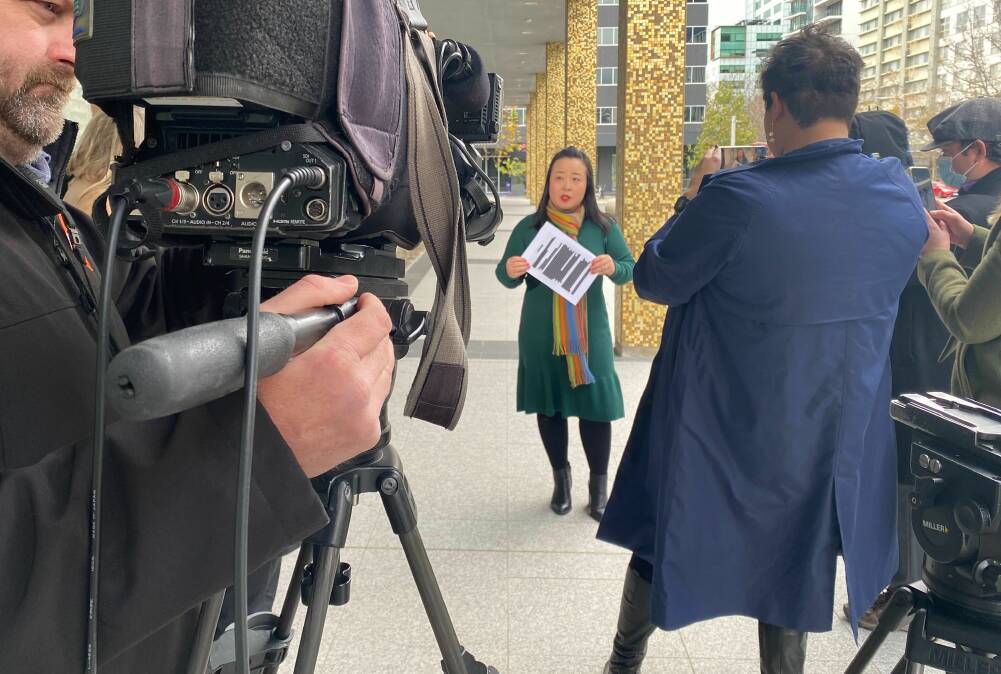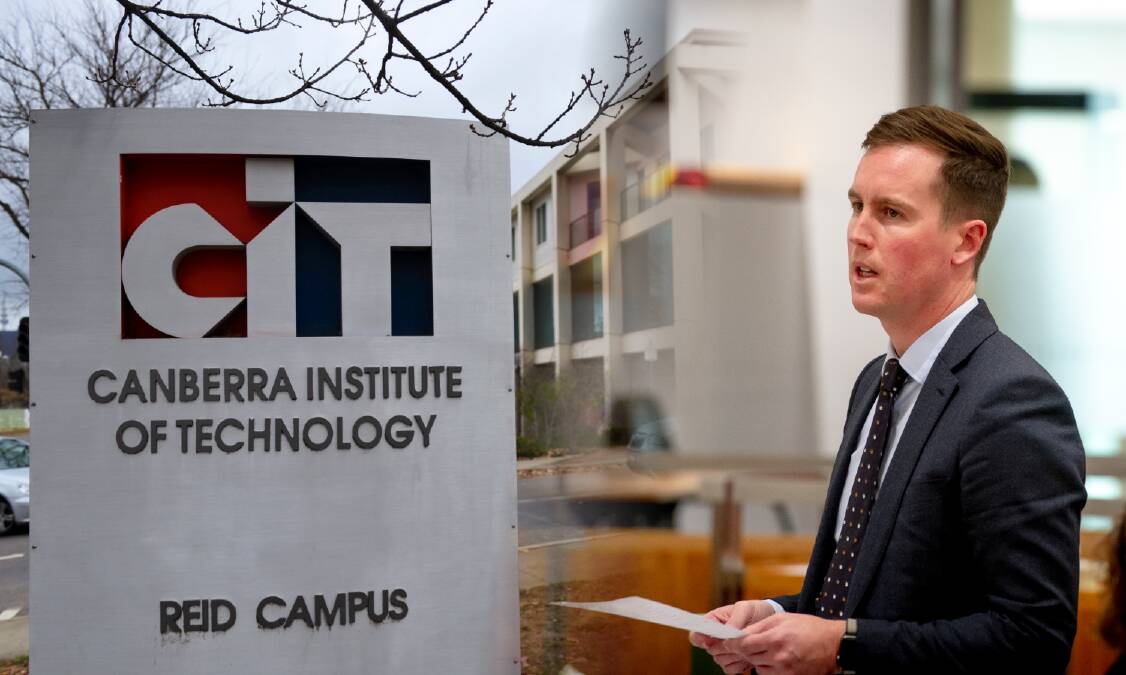
A $5 million consulting contract for the Canberra Institute of Technology has been criticised by an expert in workplace innovation, who said its purpose was obscure and it showed little obvious benefit at a time of critical skill shortages.
The contract awarded to companies owned by "complexity and systems thinker" Patrick Hollingworth is the latest in a series of contracts totalling almost $8.5 million over the past five years, which the CIT board chair has previously said represented value for money.
Skills Minister Chris Steel has also put CIT on notice, warning he would take further action if the institute cannot prove the latest contract represented value for money.
Mr Steel had raised concerns over the CIT contracts more than a year ago.
The contract, worth just $10 shy of $5 million, required Mr Hollingworth's company Think Garden to "detect early/weak signals and build trends to improve products and services" and "establish and self-sustain practices that allow for iterative learning cycles".
Professor Giles Hirst, an expert in the Australian National University's research school of management, said the contract appeared to have no clear deliverables and the terms of reference were also unclear.
"It's unclear what's actually the aim of it: is it coaching and mentoring or is it organisational transformation?" Professor Hirst said.
"When you actually do the translation of the jargon, there's a whole range of different services offered, it's quite [unclear] what those services are.
"Clearly plain language would make a big difference and would make a massive difference in actually knowing how it was going to deliver value and benefit."
Professor Hirst said there were clear questions about whether the series of contracts delivered a return on investment. He said given the current skills shortage, a contract of this amount should help to deliver offerings in a range of trades.
"It's hard to see that return investment coming from the contract," he said.

Ethos CRS chief executive Chas Savage, who helped to write the most recent update of the Australian Public Service style manual, said contracts needed to be accurate, brief and clear.
"The point of plain-English is to maximise understanding and maximise the audience who understands," he said.
"Now sometimes you've got to use technical terms, but that's not the default."
The amount of the latest contract - $4,999,990 - was $10 below the threshold at which the contract would have needed to go before the government procurement board.
Companies owned by Mr Hollingworth have received various contracts from CIT over the past five years, including a contract for mentoring two years ago for $1.705 million.
CIT also paid a $852,500 invoice for "CEO mentoring" in August last year.
After Mr Steel raised concerns last year, CIT board chair Craig Sloan wrote to Mr Steel on March 5, 2021 to say earlier contracts awarded to Mr Hollingworth represented value for money, a letter tabled in the Assembly showed.
"I am confident the procurement processes to engage the service provider were consistent with all procurement policy and practices and that, given the enormity of the transformation work, the investments in CIT via these contracts represent value for money," Mr Sloan wrote.

Mr Steel survived a no-confidence vote in the Legislative Assembly on Wednesday, which Opposition Leader Elizabeth Lee brought forward.
Ms Lee called on Mr Steel to resign over the "inexcusable, unforgivable" series of consulting contracts. She said CIT had ignored Mr Steel's concerns more than a year ago
"At best, he has completely lost the confidence of the CIT who has demonstrated clear contempt for the minister's apparent concerns. At worst, the minister has been complicit, for at least 15 months in these dodgy contracts," Ms Lee said.
Mr Steel was absent from question time after testing positive to COVID-19 in the lunch break.
Mr Steel said he and the government were not defending the most recent $4.99 million contract signed by the Canberra Institute of Technology, which was handled at arm's length from the government in line with the legislation that established the institute.
"If this procurement has been found to have been undertaken without integrity and probity - or if CIT cannot prove it presents value for public money - I will take further action," Mr Steel told the Assembly.
We've made it a whole lot easier for you to have your say. Our new comment platform requires only one log-in to access articles and to join the discussion on The Canberra Times website. Find out how to register so you can enjoy civil, friendly and engaging discussions. See our moderation policy here.







